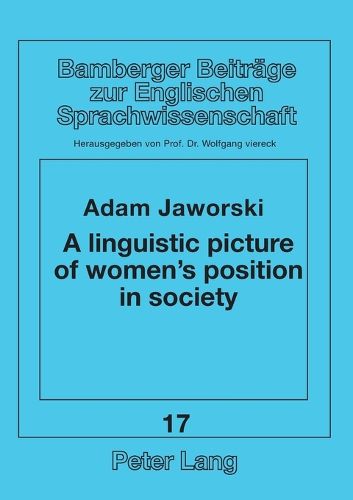Readings Newsletter
Become a Readings Member to make your shopping experience even easier.
Sign in or sign up for free!
You’re not far away from qualifying for FREE standard shipping within Australia
You’ve qualified for FREE standard shipping within Australia
The cart is loading…






This title is printed to order. This book may have been self-published. If so, we cannot guarantee the quality of the content. In the main most books will have gone through the editing process however some may not. We therefore suggest that you be aware of this before ordering this book. If in doubt check either the author or publisher’s details as we are unable to accept any returns unless they are faulty. Please contact us if you have any questions.
A discussion of English and Polish gender systems, generic words, forms of address, referring expressions and other topics, provides evidence that in these two languages males and females are not treated equally. The main concern of this book is linguistic sexism. The data indicate that speakers of both languages treat male as the norm, attribute less desirable qualities to the speech and behaviour of women, stereotype women more than men, or simply make women linguistically invisible members of society.
$9.00 standard shipping within Australia
FREE standard shipping within Australia for orders over $100.00
Express & International shipping calculated at checkout
This title is printed to order. This book may have been self-published. If so, we cannot guarantee the quality of the content. In the main most books will have gone through the editing process however some may not. We therefore suggest that you be aware of this before ordering this book. If in doubt check either the author or publisher’s details as we are unable to accept any returns unless they are faulty. Please contact us if you have any questions.
A discussion of English and Polish gender systems, generic words, forms of address, referring expressions and other topics, provides evidence that in these two languages males and females are not treated equally. The main concern of this book is linguistic sexism. The data indicate that speakers of both languages treat male as the norm, attribute less desirable qualities to the speech and behaviour of women, stereotype women more than men, or simply make women linguistically invisible members of society.